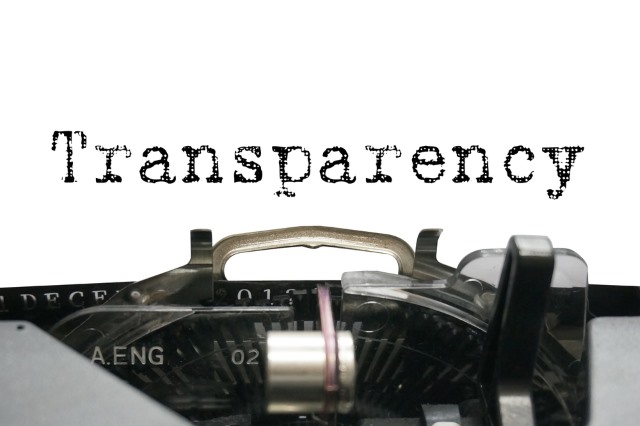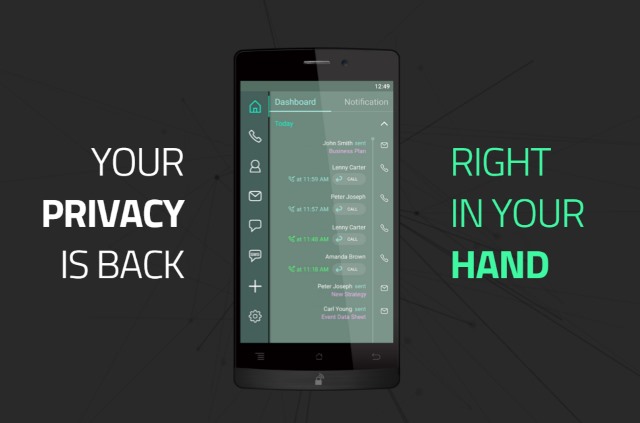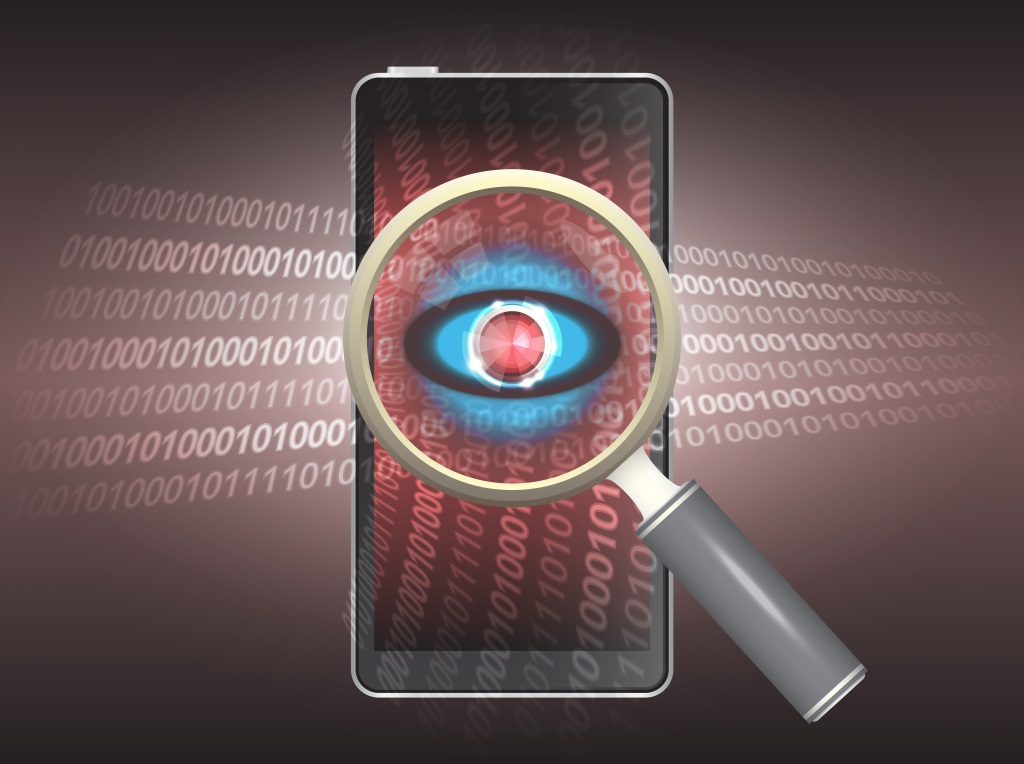
Microsoft launches new Transparency Hub, details content removal requests
In the post-Snowden age, transparency reports are all the rage. After the privacy debate that followed the NSA surveillance revelations technology companies fell over themselves to publish everything they could about government data requests. Microsoft has already released transparency reports, but today unveils a new Transparency Hub.
This is designed to be a central resource through which a variety of reports can be accessed, including the Law Enforcement Requests Report and U.S. National Security Orders Report. Data for the first six months of 2015 is now available, and there is a new section dedicated to Right To Be Forgotten-style requests for data removal.

Line introduces Letter Sealing message encryption feature
As the battle between privacy and security heats up, one instant messaging service has definitively announced which side of the divide it falls on.
Line, which is estimated to have more than 200 million monthly active users, has launched a new end-to-end encryption feature called "Letter Sealing" for use across both smartphone and desktop platforms.

HP and 3M join forces to fight visual hacking
If you are like me, you do a lot of work on the go. Not a day goes by where I am not typing away on my laptop in a public place like Starbucks or on a bench. Unfortunately, this opens me up to visual hacking. In other words, devious people can simply glance at my laptop to see what I am doing. If you work with sensitive information, this is a huge problem.
According to a recent 3M-funded study, 90 percent of visual hacking attempts are successful. Luckily, HP has teamed up with 3M to fight this visual hacking scourge. Rather than use clunky screen covers, the computer manufacturer will integrate the 3M technology directly into the laptop display. Whoa.

Hear the recordings Google stores of the voice commands you've said to your phone
OK Google, Siri, and Cortana all make it possible to control a phone simply by speaking to it. In the case of Google, what you might not be aware -- it's hardly something the company shouts about -- is that recordings of every command, question, and request are stored online.
Listening back through these could well be interesting, embarrassing, perhaps even nostalgic. You can step back in time and remind yourself of trips abroad, fun nights out, and the like, but you might also be concerned about privacy. If you would rather these recordings were not stored online, you can delete them; here's how.

IT professionals express doubts over IoT security
According to a new survey, 64 percent of consumers are confident they can control the information access of Internet of Things devices, but 78 percent of IT professionals say security standards are insufficient.
The findings come from the 2015 Risk/Reward Barometer of global cyber security association ISACA and suggest a major confidence gap about the security of connected devices between the average consumer and cyber security and information technology professionals.

Hillary Clinton wants Edward Snowden to stand trial
Hero or villain? Opinion is very much divided about Edward Snowden. For Hillary Clinton there is no question -- he is a villain who broke US law and should face trial. The NSA contractor became a topic for discussion between Clinton and Bernie Sanders at last night's presidential debate, and the two candidates had slightly differing views of how he should be treated.
Snowden has said that he would be willing to serve time in jail, going as far as offering himself up to the government. He says that he has received no response -- something that would apparently be very different if Clinton succeeds in her presidential bid. While Clinton is taking a hard line, Sanders offers more leniency.

BlackBerry Priv will be expensive
The rumor mill has put a price tag on the upcoming BlackBerry Priv handset, and this smartphone won’t be cheap.
That likely won’t come as a surprise though, given the noises that have already been made about this being a premium phone, and BlackBerry’s chief executive John Chen has even previously said that the device will have a top-end price tag.

Millennials lose faith in organizations' cyber security
New research suggests that millennials in the US and UK have lost trust in the ability of enterprises and governments to protect their personal data online.
The survey comes from digital identity and credentials specialist Intercede and questioned around 2,000 16 to 35 year-olds. It indicates a widespread state of mistrust that has the potential to change the nature of online interactions with public agencies and corporations and points to a need for action to avoid a future backlash.

ARCHOS announces the privacy-centric GranitePhone to take on the Blackphone
Smartphone owners will often argue over which mobile platform is the most secure, but if you're looking for the ultimate security, you need to step away from the mainstream. Silent Circle is probably the best known off-the-beaten-track company thanks to its ultra-secure Blackphone, but now there is a new contender: the GranitePhone by SIKUR.
Just as the Blackphone 2 runs the custom-made Silent OS 2.0, so the GranitePhone is driven by Graphite OS. It's a handset aimed at not only governments and businesses looking to secure their communications and data, but also individuals who are particularly concerned about their privacy.

Who's looking at your screen and how can you stop them? [Q&A]
We can all remember seeing kids at school hunched over their desks to prevent anyone seeing what they were writing on their test papers. But when it comes to hiding sensitive information on your screen things aren’t that easy.
How big a problem is eavesdropping in this way and what can be done to guard against it? To find out, we spoke to Dr Bill Anderson, Chief Product Officer of technology company OptioLabs which has just announced a collaboration with AMD to help solve the issue.

US businesses fear Safe Harbor dismissal will affect European operations
Small and medium-sized enterprises (SME) in the US are saying that the suspension of the Safe Harbor law might mean end of overseas operations for them, Reuters reported on Thursday.
The Safe Harbor law allowed companies in the United States to transport data regarding its European users to the States. It was struck down recently, by the European Court of Justice.

US government will not force companies to decode encrypted data... for now
The Obama administration has announced that it will not require companies to decrypt encrypted messages for law enforcement agencies. This is being heralded as a 'partial victory' by the Electronic Frontier Foundation; partial because, as reported by the Washington Post, the government "will not -- for now — call for [such] legislation".
This means that at the moment companies will not be forced to build backdoors into their products, but there is no guarantee that this won’t happen further down the line. The government wants to continue talks with the technology industry to find a solution, but leaving things in limbo for the time being will create a sense of unease on both sides of the debate.

Why buying a used mobile could get you more than you bargained for
If you buy a mobile device or a hard drive second hand are you buying the previous user’s data along with it?
A new study from data erasure company Blancco Technology Group and recovery specialist Kroll Ontrack suggests that in a high percentage of cases the answer is yes.

Top court rules European-US Safe Harbor data sharing agreement invalid
The European Court of Justice has ruled that the Safe Harbor agreement that is in place between technology companies is invalid. The agreement covers the sharing of data between the EU and the US but the court said there are insufficient privacy and data protection checks in place.
European law dictates that data should only be shared with and transferred to countries that offer a comparable level of data protection to the EU. The Safe Harbor agreement has been in operation for around 15 years, but after concerns that European data could be shared with the likes of the NSA it means that companies such as Facebook, Google, and Apple could be sharing data illegally.

Snowden says GCHQ's Smurf programs can tap, hack, and control any smartphone
In an interview with BBC Panorama, Edward Snowden made further revelations about the capabilities of government agencies. Having blown the whistle on the NSA, Snowden has also shed light on the activities of the UK equivalent, GCHQ.
In tonight's interview, the former NSA contractor spoke of the agency's "Smurf Suite" -- a collection of tools that can be used to intercept and control smartphones, even if they're turned off. Named after the blue cartoon characters, the Smurf tools can be deployed via encrypted text message without alerting the handset owner.
